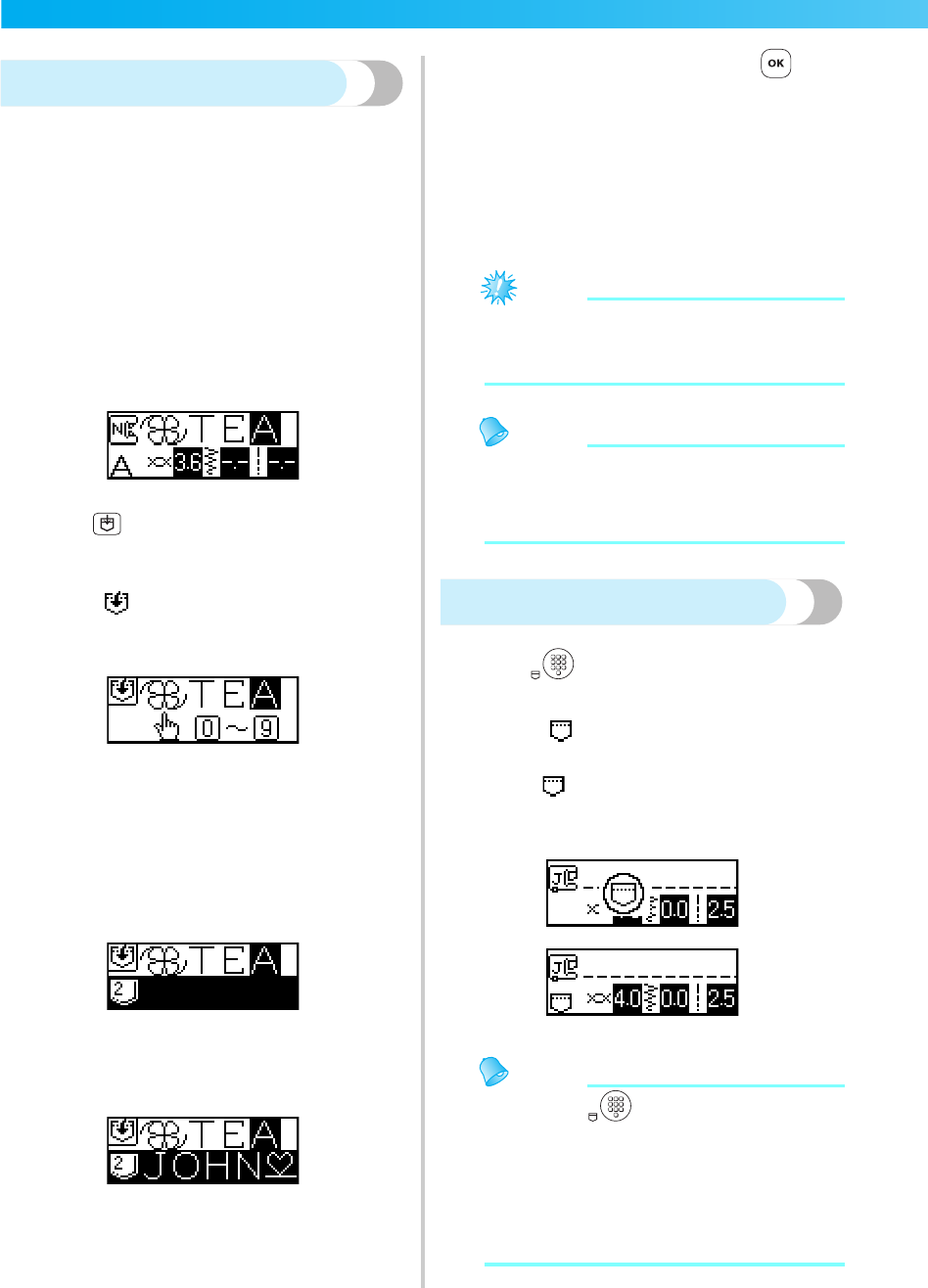
UTILITY STITCHES — — — — — — — — — — — — — — — — — — — — — — — — — — — — — — — — — — — — — — — — — — —
—
130
Saving patterns
Combined patterns can be saved for later use. Since
saved patterns are not lost after the sewing machine is
turned off, they can be retrieved at any time. This is
convenient for patterns, such as names, that will be
used often. Utility stitches can also be saved. Up to
ten patterns can be saved.
a
Create the combined pattern that you wish to
save. Otherwise, display the pattern to be
saved.
• For details, refer to “Combining patterns”
(page 123).
b
Press (Memory key) in the operation
panel.
X The machine enters pattern memory mode,
and appears in the upper-left corner of
the screen.
c
Press the numeric key (0 through 9) for the
pocket where the pattern is to be saved.
X The saved contents of the pocket for the
selected number are displayed.
• If nothing has been saved, nothing appears in
the bottom of the screen.
• If the pocket contains a pattern, the pattern is
displayed. To leave this pattern in the pocket,
select a different pocket.
d
Check the contents, and then press (OK
key).
The contents saved in the selected pocket are
overwritten.
X “Saving...” appears while the pattern is being
saved in the pocket.
X After the pattern is saved, a beep is sounded,
and the initial stitch screen appears again.
Note
z Do not turn off the sewing machine while a
pattern is being saved, otherwise the pattern
data may be lost.
Memo
z The pattern saved in the pocket can be
erased by performing the save operation
with no pattern selected.
Retrieving a pattern
a
Press (Preset utility stitch/saved pattern
key) in the operation panel.
X After appears in the center of the screen,
the machine enters retrieve pattern mode,
and appears in the lower-left corner of
the screen.
Memo
z Each time (Preset utility stitch/saved
pattern key) is pressed, the machine switches
between the preset utility stitch mode and
the saved pattern mode. (For details on the
preset utility stitch mode, refer to “Selecting
stitch types and patterns” (page 70).


















